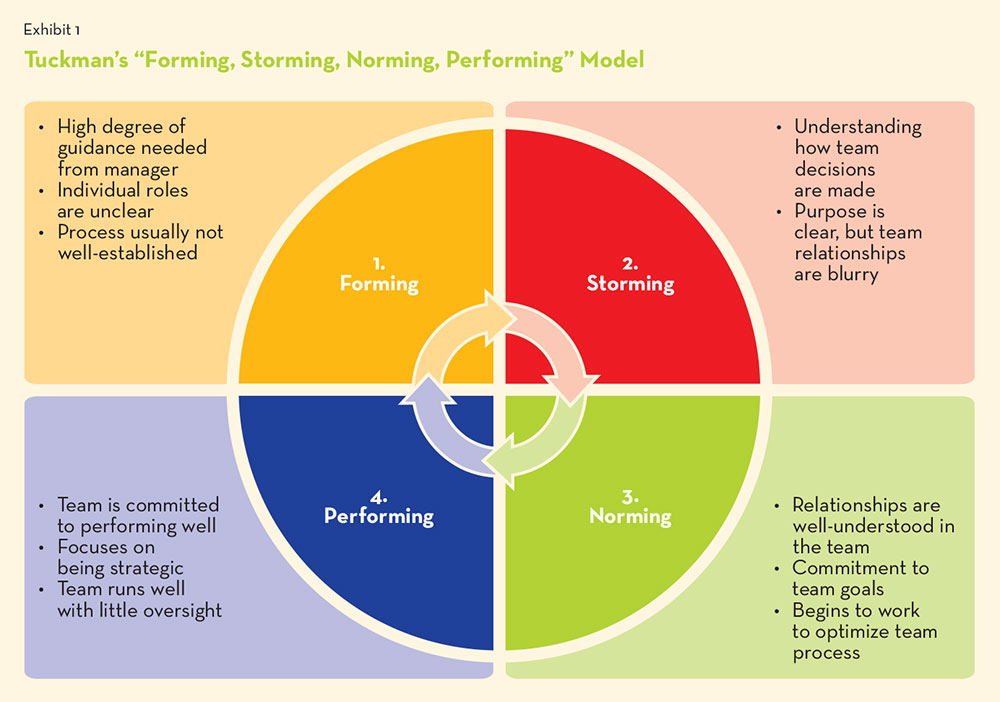Forming - Storming - Norming - Performing
OverviewThis model was first developed by Bruce Tuckman in 1965. It is one of the more known team development theories. Tuckman's theory focuses on the way in which a team handles a task from the initial formation of the team through to the completion of the project. Tuckman later added a fifth phase; Adjourning and Transforming to cover the finishing of a task.
Tuckman's theory is particularly relevant to team building challenges as the phases pertain to the completion of any task undertaken by a team. One of the very useful aspects of team building activities contained within a short period of time is that teams have an opportunity to observe their behaviour within a measurable time frame. Often teams are involved in projects at work lasting for months or years and it can be difficult to understand experiences in the context of a completed task.
Forming
The team is assembled and the task is allocated. Team members tend to behave independently and although goodwill may exist they do not know each other well enough to unconditionally trust one another.Time is spent planning, collecting information and bonding.
Storming
The team starts to address the task suggesting ideas. Different ideas may compete for ascendancy and if badly managed this phase can be very destructive for the team. Relationships between team members will be made or broken in this phase and some may never recover. In extreme cases the team can become stuck in the Storming phase.
If a team is too focused on consensus they may decide on a plan which is less effective in completing the task for the sake of the team. This carries its own set of problems. It is essential that a team has strong facilitative leadership in this phase.
Norming
As the team moves out of the Storming phase they will enter the Norming phase. This tends to be a move towards harmonious working practices with teams agreeing on the rules and values by which they operate.
In the ideal situation teams begin to trust themselves during this phase as they accept the vital contribution of each member to the team. Team leaders can take a step back from the team at this stage as individual members take greater responsibility.
The risk during the Norming stage is that the team becomes complacent and loses either their creative edge or the drive that brought them to this phase.
Performing
Not all teams make it to the Performing phase, which is essentially an era of high performance. Performing teams are identified by high levels if independence, motivation, knowledge and competence. Decision making is collaborative and dissent is expected and encouraged as there will be a high level of respect in the communication between team members.

Monitor Evaluator
Even tempered, strategic and discerning. Sees all the options and judges accurately. However can lack drive and lack inspired leadership qualities.
Adjourning & Transforming
This is the final phase added by Tuckman to cover the end of the project and the breakup of the team. It should be noted that a team can return to any phase within the model if they experience a change, for example a review of their project or goals or a change in members of a team.
In a successful team when a member leaves or a new member joins the team will revert to the Forming stage, but it may last for a very short time as the new team member is brought into the fold.
We are able to provide facilitated team building programs and activities are customised as per the objective of the program where Tuckman's theory, or any other team building theory, is the theme of the event. This can facilitate learning and retention and provide working examples of the theories in action.


